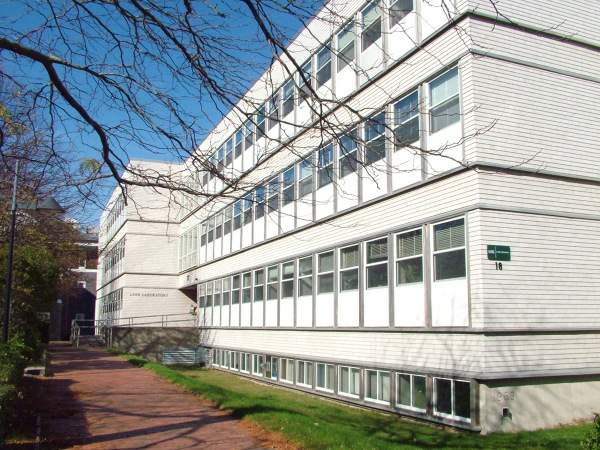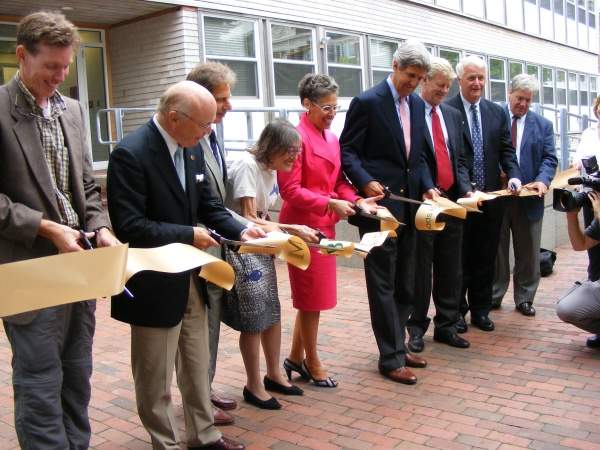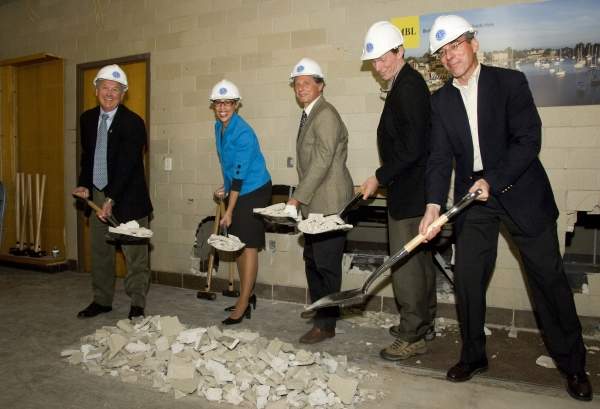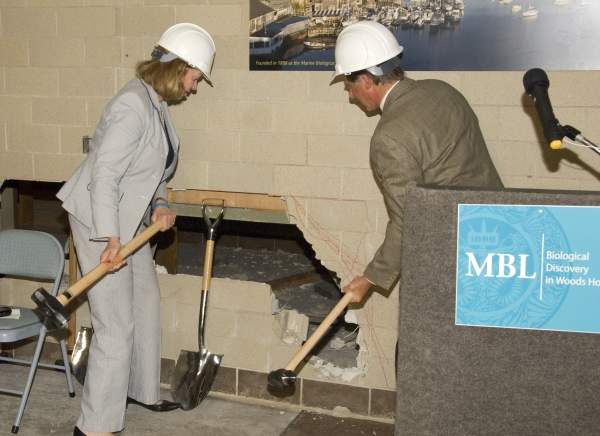Marine Biological Laboratory (MBL) is an internationally recognised not-for-profit research, education and training institute for environmental, biomedical and biological sciences.
The educational campus is located on a coastal site in Woods Hole, Massachusetts, in the US. Founded in 1888, MBL is the oldest private marine laboratory in the country.
The MBL institute provides research and development facilities to world renowned scientists in cell and developmental biology, ecology, aquaculture, marine biotechnology, molecular biology, reproductive biology, global infectious diseases, neurobiology and sensory physiology to improve human conditions.
The Loeb Laboratory, built in 1970, is the main research training facility of the institute. It is named after the prominent physiologist of the 20th century, Jacques Loeb.
It offers various laboratory courses in the field of life sciences including embryology, microbiology, neuroscience and cell biology, among others.
About 450 scientists and students undergo training at the Loeb lab every year. The state-of-the-art facility is a national resource for discovery and training and expands the scope of life sciences research.
Leob laboratory renovation
The Loeb lab facility has been completely renovated with an investment of $25.2m. The three-storey, 66,000ft² laboratory facility was modernised by modifying the interior design and infrastructure.
The renovated facility incorporates modern building systems and research laboratories, a centralised microscopy facility for commercial vendors, a resource centre to allow research in to regenerative biology and medicine, as well as a computer training centre with bioinformatics, imaging and computational biology equipment.
The project integrated various training programmes into the new facility with separate spaces for all the disciplines, offices and support spaces.
The interiors are designed to promote collaborations and interactions by researchers. It has also added new kitchenettes and lounge areas with laptop stations, projectors, seating and marker boards.
The facility includes the Eugene Bell Center for Regenerative Biology and Tissue Engineering, a centre aimed to develop suitable medical therapies for debilitating diseases and injuries in humans. The centre will promote multidisciplinary research on marine invertebrates and other aquatic organisms to understand and reduce the natural process of ageing and regeneration of tissues.
Construction of MBL’s facility
Groundbreaking ceremony for the gut renovation of the facility was held in September 2009. It was completed in July 2010.
The project created about 250 construction jobs in the Cape Cod region at the peak.
The building incorporates several sustainable features such as low consuming electrical and water installations, energy efficient HVAC and lighting systems, Tecogen 200t STx series chillers and heat recovery, envelope insulation, a reflective white roof, usage of certified wood and low emission materials for the indoors, saving about 37% energy when compared to a similar building.
About 98% of the waste materials produced from the demolition of the interiors were recycled.
Retaining the existing exterior concrete wall structure and floor plates was considered to be one of the most important green features in the renovation.
The renovated building achieved Leadership in Energy and Environmental Design (LEED) Gold certification from the US Green Building Council in January 2011.
State-of-the-art project background
The project is part of a ten-year master plan for the Cape Cod campus to cope with the growth of the MBL. The comprehensive master plan was prepared by Tsoi / Kobus & Associates in 2003.
Both the Woods Hole Village campus and the Oyster Pond Road campus of MBL are being developed to allow year-round research, improve research and supporting facilities, classrooms, parking and storage infrastructure.
Contractors and funding behind Marine Biological Laboratory’s plan
The renovated Woods Hole lab was designed by Tsoi / Kobus & Associates. Shawmut Design and Construction was the construction manager and Odeh Engineers was the structural engineer.
AHA Consulting Engineers was the mechanical systems, electrical, plumbing and fire protection engineer.
MBL received a grant of $10m from the Massachusetts Life Sciences Center and $15m in private funds from the Howard Hughes Medical Institute (HHMI) towards project fruition.






